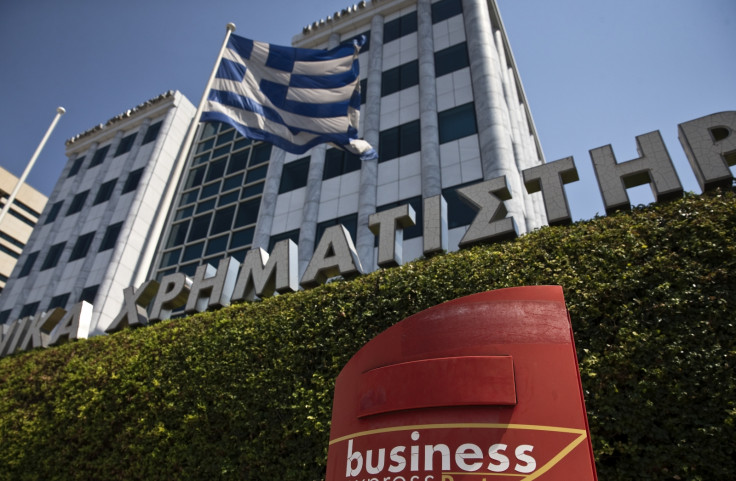Greece debt crisis: Athens stock exchange falls 22.8% after 5-week closure

Athens stock exchange (ASE) plummeted by more than 22.8% just minutes after opening on its first day of trading on 3 August since it was last open on 26 June. The stock exchange, which closed for five weeks because of the country's financial turmoil, experienced a fall slightly ahead of the 20%-21% decline expected by analysts.
Bas van Geffen, quantitative analyst at Rabobank, said ahead of trading that "European equities ended the week on a modestly positive note", closing slightly higher on 31 July.
He added: "Sticking with the equity exchanges, today the Greek stock exchange is set to reopen after its closure when the government introduced capital controls, albeit under strict additional regulations to prevent capital flight through the sale of Greek equities."
The country's Big Four banks, Alpha Bank, Eurobank, National Bank and Piraeus Bank, all opened 30% lower than their share price in June, which is the limit for shares listed on the ASE. Banks, which make up almost a quarter of the index, suffered most because of the billions of dollars withdrawn by the Greek people in order to secure their money, afraid of a collapse.
Greece agreed to a bailout package with its creditors since the ASE closed on 26 June, but debt is expected to climb to 200% of the country's GDP and the country is far from recovered, causing investors to seek alternatives outside ASE-listed companies.
The euro fell slightly after the ASE reopened, edging down by 0.25% against the pound and falling 0.22% against the dollar, trading at $1.09 (£0.70).
"The banks and the property market were smashed, which makes sense as the banks are so tied into sovereign debt," Michael van Dulken, head of research at Accendo Markets told IBTimes UK.
"Restrictions are clearly aimed at getting the market open again but minimising the impact of short selling speculation and money flowing out of the banks. You can invest money taken from a safety deposit box or from a stash under your bed, but you can't take out money from your account to buy shares."
Van Dulken added: "It's a bit like China's intervention."
© Copyright IBTimes 2025. All rights reserved.






















